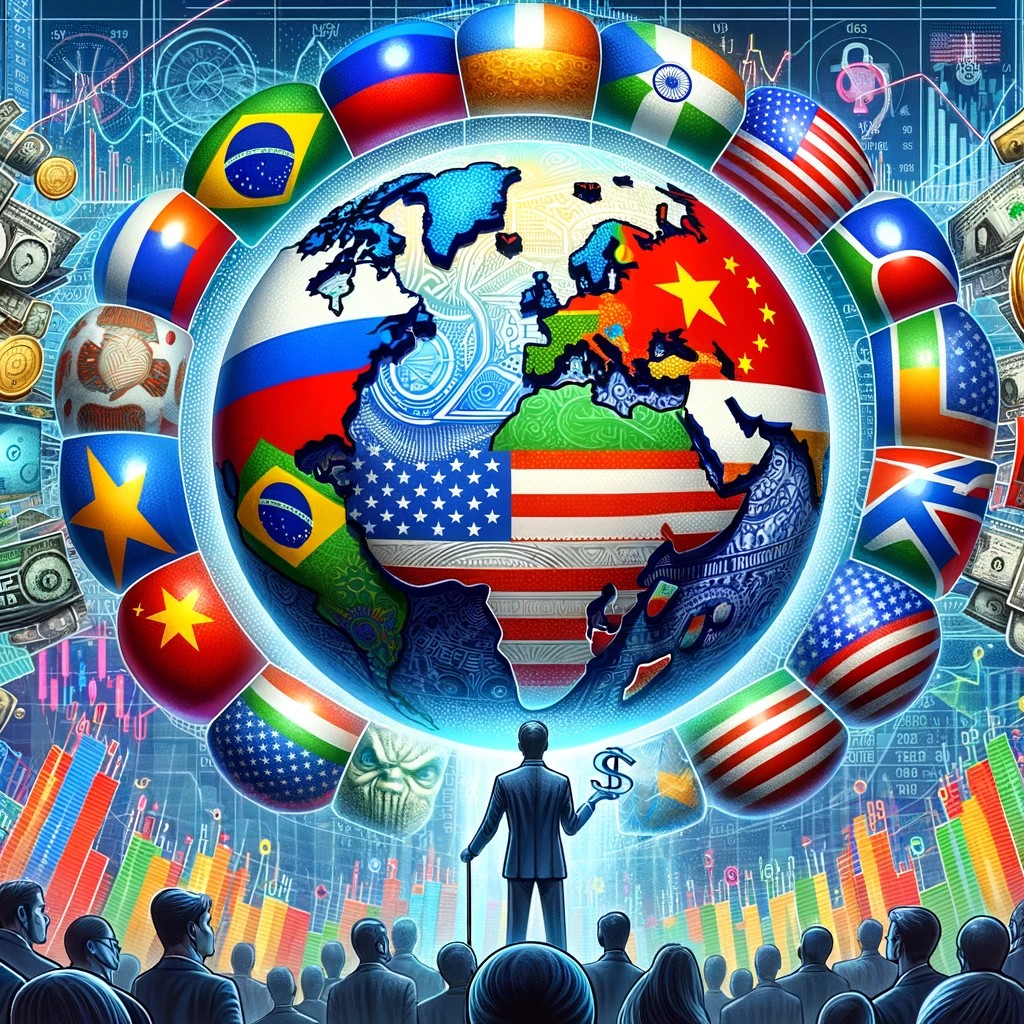Vivek Ramaswamy, a notable figure in the U.S. political landscape and a presidential candidate, has recently turned the spotlight onto a topic that could have substantial implications for the country’s economic future. The core of his concern revolves around the BRICS alliance and their potential move towards a common currency. This move, according to Ramaswamy, could pose a significant challenge to the United States, especially in terms of the dollar’s long-standing dominance as the world’s reserve currency.
The Threat to the U.S. Dollar’s Dominance
Ramaswamy’s analysis brings to light the underlying risks of a de-dollarization movement led by the BRICS nations. The establishment of their own reserve currency, as he suggests, could dramatically increase the borrowing costs for the U.S., which is already grappling with trillions in debt. The timing, as he points out, is less than ideal for the U.S. to face increased borrowing costs. His proposition isn’t to suppress this emerging currency but to enhance the value of the dollar itself. By tying the dollar to hard commodities, he believes the U.S. can fortify its currency’s position.
The U.S. dollar has enjoyed unparalleled dominance in global trade for decades. However, growing interest in a BRICS common currency, coupled with a rising tide of skepticism towards the U.S. dollar, is fueling the momentum for this new financial force. With the BRICS bloc looking to expand and further develop its currency and payment services, Ramaswamy urges the U.S. to proactively address this budding challenge.
A Changing Global Economic Landscape
The expansion of the BRICS bloc, which now includes Egypt, Ethiopia, Iran, Saudi Arabia, and the United Arab Emirates, signifies a significant shift in the global economic order. The addition of these countries, coupled with the interest from over 30 other nations, represents a collective desire to shift away from the U.S. dollar and potentially reshape the global economic landscape. Currency expert James Rickards attributes this movement to the U.S.’s use of the dollar as a geopolitical tool, which has led other nations to seek alternatives.
The feasibility of a BRICS currency overtaking the dollar is a matter of debate among experts. Rickards points out that a large portion of global reserves are held in dollar-denominated securities, a status not easily challenged. However, the idea of a stable coin or gold-backed currency as a viable alternative has been floated by financial analysts like Peter Earl.
This alliance, however, is not without its internal challenges. Political instability among its members, like the longstanding rivalry between India and China, as well as conflicts among new members such as Saudi Arabia and Iran, adds layers of complexity to their collective decision-making. Additionally, Saudi Arabia’s involvement might jeopardize its diplomatic relations with the U.S. and Israel.
If the BRICS succeed in reducing the dollar’s role in global transactions, it could have inflationary consequences for the U.S. A lessened demand for the dollar might devalue it, leading to increased costs for imports and thereby spiking inflation. While the likelihood of the BRICS currency dethroning the dollar as the world reserve currency is slim in the near future, the potential economic repercussions for the U.S. cannot be ignored.
In essence, Vivek Ramaswamy’s warning sheds light on a critical issue facing the U.S. The emergence of a BRICS common currency represents not just an economic challenge, but a geopolitical shift that could redefine global financial dynamics. The U.S., in response, must strategize not only to maintain the dollar’s prominence but also to adapt to an evolving global economic environment where new players and currencies vie for dominance.





